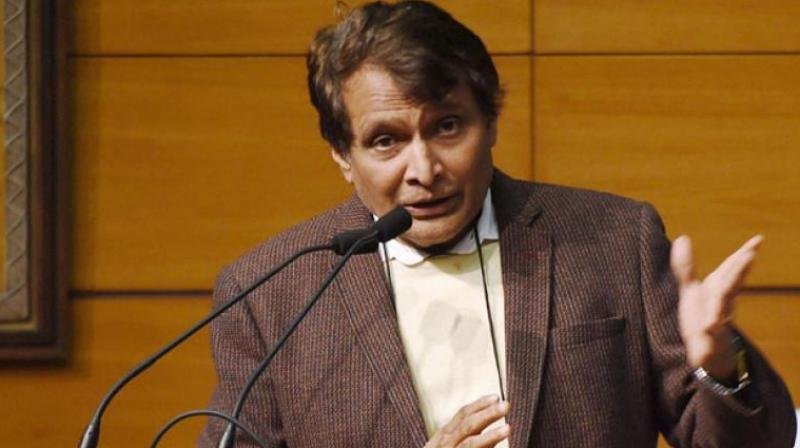Inside BENEO’s new pulse plant: pioneering sustainable protein from faba beans
India has said it cannot envisage any negotiated outcome, at the ongoing meeting of the World Trade Organisation’s apex decision-making body, which does not include successful resolution of the food security right issue.
In his address at the Plenary Session of the WTO Ministerial Conference (MC) here, India’s commerce and industry minister Suresh Prabhu said, “the permanent solution for public stockholding for food security purposes, is a matter of survival for 800 million hungry and undernourished people in the world.”
He added, “A successful resolution of this issue would fulfil our collective commitment to the global community… we cannot envisage any negotiated outcome at the (Buenos Aires) MC, which does not include a permanent solution.” India has already made it clear that it will not accept a ’permanent solution’ with onerous conditions that in turn make it very difficult for the (Indian) government or other developing countries to meet the food security needs of their people.
Prabhu also said “India calls upon the WTO membership to re-endorse the centrality of development (the agenda to improve the trading prospects of developing nations) in WTO negotiations without creating new sub-categories of countries.”
He said, “We are increasingly seeing that the discourse on development at the WTO is sought to be deflected by specious arguments based on aggregate GDP figures. While in India we are proud of our GDP and growth rates of recent years, we cannot ignore that India is home to more than 600 million poor people.” The minister added that, therefore, “we (India) are legitimate demandeurs for special and differential treatment for developing countries.”
This is in the context of attempts by certain rich countries to wreck the broad unity among developing nations on a host of issues, by suggesting that countries such as India and China are currently emerging economies and reasonably strong in trade — unlike others in the developing world – and, therefore, such powerful nations that are still in the ’developing’ category do not deserve to gain from the favourable treatment meant only for developing nations in WTO Agreements.
Prabhu urged the entire WTO Membership to unequivocally reaffirm the importance of a rules-based multilateral trading system. He expressed “India’s concern at the inordinate delay in appointment of new members to the (WTO’s) Appellate Body,” and said, “We need to collectively and expeditiously resolve this impasse.” This statement comes in the backdrop of criticism against the US for blocking the re-appointment of judges to the WTO’s Appellate Body — a move that many say would undermine the WTO’s Dispute Settlement Mechanism, which is recognised as a fundamental pillar of the organisation due to it being a ‘fair, effective and efficient mechanism to solve trade problems.’

